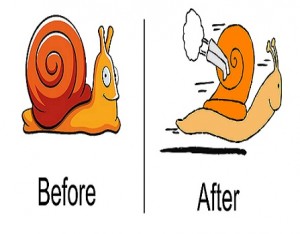Tag Archives: performance
Why Amazon.com Pages Rely on DNS Pre-fetch

The article presents a perspective on why Amazon.com pages rely on DNS pre-fetch and what other e-commerce websites could learn from this. Whats Happening Under the Hood? As you do the view source of the homepage, amazon.com, you would find following Javascript code snippet, right at the top of the page: <meta http-equiv=”x-dns-prefetch-control” content=”on”> <link rel=”dns-prefetch” href=”http://g-ecx.images-amazon.com”> <link rel=”dns-prefetch” href=”http://z-ecx.images-amazon.com”> <link rel=”dns-prefetch” href=”http://ecx.images-amazon.com”> <link rel=”dns-prefetch” href=”http://completion.amazon.com”> <link rel=”dns-prefetch” href=”http://fls-na.amazon.com”> Later, in the same page as well as other pages, you would find several resources such as images, Javascript, CSS files accessed from one of the above as base URLs. So, let’s try and explore some of the …
Javascript Libraries to use for Faster Webpage Loading

The article explores the web page loading issues in relation with loading of static resources such as Javascript/CSS files and goes on to suggest Javascript libraries that could be used to enable conditional loading of JS resources thereby achieving faster webpage loading. Following are some of the common use case scenarios that, if taken care, would enhance faster web page loading: Conditional loading of Javascript files in various different pages: Many of the I-could-also-do-front-end-programming adopt the approach of putting all the resources such as Javascript & CSS files in one common file and include the file in different web pages. Some of these common JS files include jquery & other …
Tips to Load Your Webpage Faster based on Google’s Pre-* Recommendations

The article recommends 4 simple tips to load your webpage in faster manner based on Google Pre-* technology recommendations. These tips are based on suggestions by Google Engineer, Ilya Grigorik in his presentation that could be found on this page. Do note that most of these (such as pre-fetch, pre-resolve etc) are also part of their PageSpeed initiative. While I was reading the presentation, it struck me as to check out on who is leading the internet browser share in the market. Following is the plot I could come up with data based on browser usage statistics. And, the winner is Google Chrome. Thus, I found it relevant enough to …
Use Facebook BigPipe to Load Webpages Faster

This article represents Facebook BigPipe technology and various different open source frameworks which could be used to load web page faster like Facebook. Please suggest related frameworks if one or more of them is not mentioned in this article. You may have read the text on BigPipe on several webpages. However, I wanted to present a different perspective including pictorial presentation for better understanding. Traditional webpage serving model Following diagram represents traditional webpage serving model. You may notice that in traditional model, the request-response operations are pretty much sequential in nature. Thus, following can be observed: Webserver Busy, Browser Idle: As the request is sent from browser, and webserver …
Google Glass Development: Performance Tips
With google glass development, performance has to take center stage and software engineers, no more can afford to put performance testing on back burner. Following are some of the techniques for achieving high performance of glasswares: Compression (to beat Network Latency): Compression technique has been one of the most important aspect in getting faster download of your web pages. The primary reason have been to take care of network latency aspects which would impact glasswares performance much more. You may want to check the details on this on following page. The same technique also applies to google glasswares by enabling gzip compression. One needs to do following two things to …
I found it very helpful. However the differences are not too understandable for me